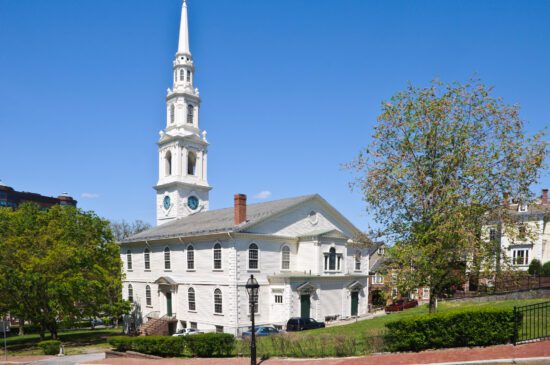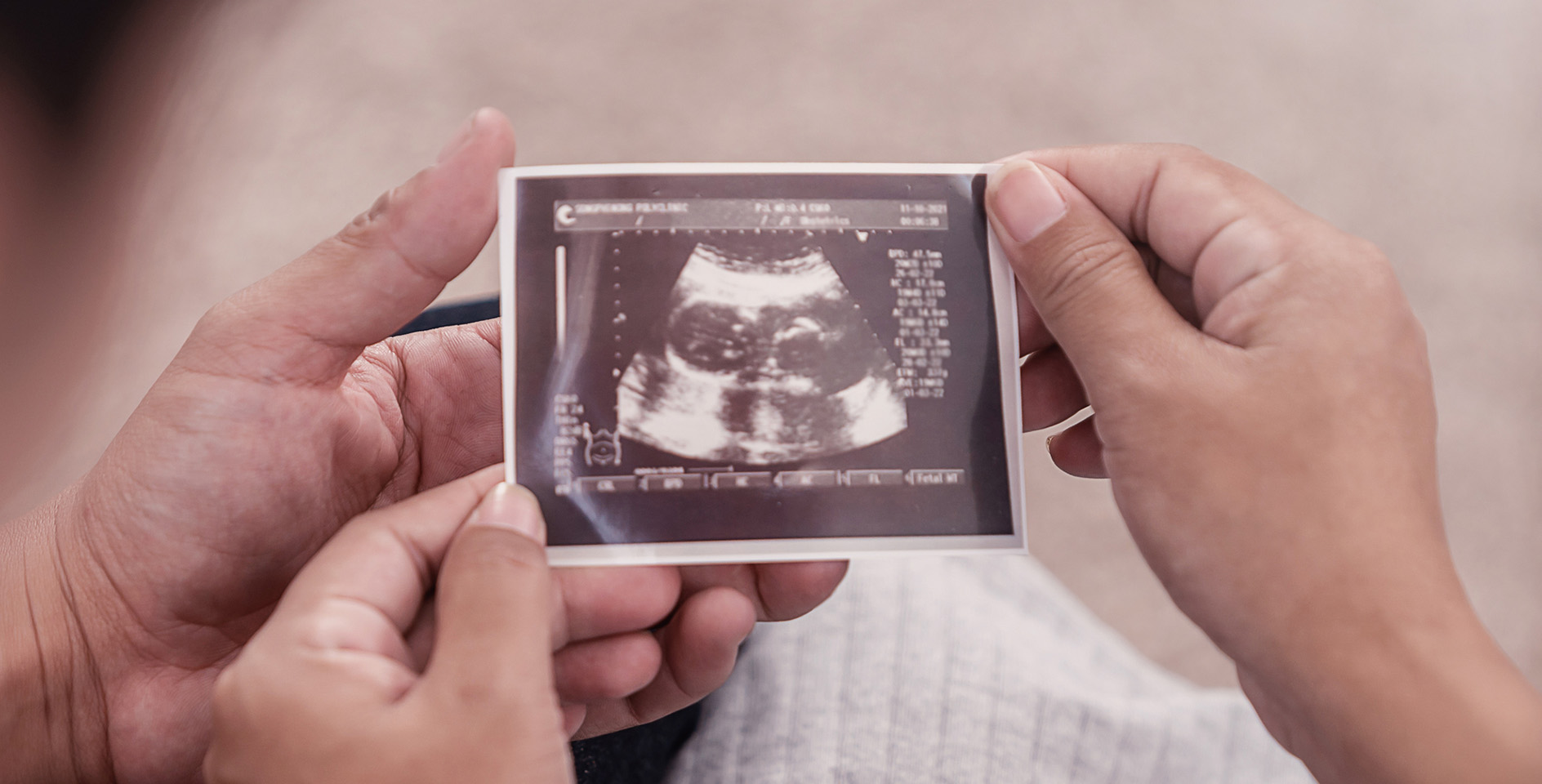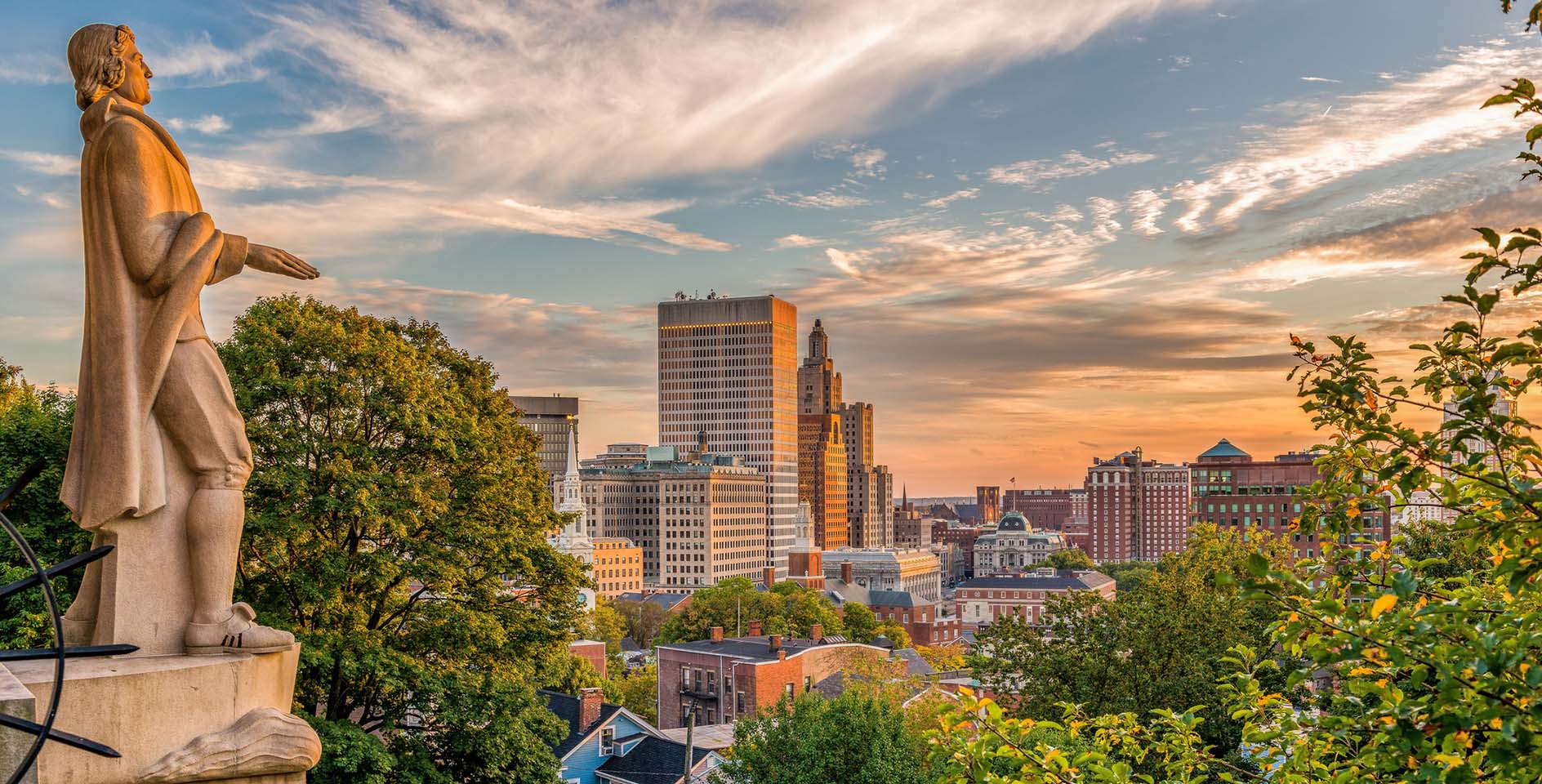Editor’s Note: Canon & Culture is beginning 2015 with a Symposium on Statecraft and political theology featuring six essays from Research Fellows of the ERLC’s Research Institute.
You had all these advantages in your ancient states, but you chose to act as if you had never been molded into a civil society and had everything to begin anew. You began ill, because you began by despising everything that belonged to you.[1]
So begins Edmund Burke’s scathing criticism of the French Revolutionaries. In disposing of its political tradition and all the institutions founded upon it, the self-anointed republic attempted the impossible. Revolutionaries, led brashly by Robespierre, sought to craft the French constitution entirely from scratch, assuming all the while that they could, like God, create something ex nihilo. Burke’s prediction that the episode would end in spectacular calamity was uniformly prescient. It turns out constitutions are indeed inherited; gifts of the past received as an authoritative body of wisdom. “Revolutionaries do not make revolutions!” reminds Hannah Arendt. By which she meant that the reshaping of political life through violent means always ends in disaster. Real, enduring change in politics is always imperceptibly gradual.
When the question of “what the ideal American polity would look like from a Christian perspective?” was first put to me, Burke’s Reflections came immediately to mind. Statecrafting is not a task humans assume with great competence. As is the case with so many of our aims, sometimes ambitious projects spiral into abject failure, while at other times our modest, simplistic projects flower surprisingly into astonishing success. There’s often a persistent disjunction between our intentions and achievements, and the same truth applies to objects of state.
The theoretical point is, in my view, an unprofitable line of counterfactual speculation anyway. The option to start over, to hit the reset button, does not fall to us. If however, as I have intimated, the shaping of politics occurs gradually because citizens undertake distinctly political projects in public, then any “crafting” of the state is for the Christian a result of faithful, prudent, and patient contributions to the fabric of public life. The real and lasting effects of those activities will remain unknown until seen in retrospect, so we must hope that public acts carried out in faith and love do in fact leave an enduring impression.
The Reformers, for good reason, associated this gradual transformation of politics with the theological notion of vocation. Part of what characterizes our vocation is the fact of having a political citizenship to which we are in some sense responsible. Some are called to farming, some to trading, some to building, and some even to governing. Vocation defines the mode and scope of one’s contribution. Remaining faithful to our vocations, minding our own affairs (1 Thess 4:11), gives to God what only God as sovereign Lord of all can do—to alter the state of politics as such. As is so often the case, Augustine perhaps puts it best:
…let us not attribute the power to grant kingdoms and empires to any save the true God. He gives happiness in the kingdom of Heaven only to the godly. Earthly kingdoms, however, He gives to the godly and ungodly alike, as it may please Him, whose good pleasure is never unjust. [2]
1.) God in his sovereignty rules the political order. It is impossible to square the imperatives of Romans 13:1-7 with the impulse to replace real political orders with ideal ones. Let every person be subject to the governing authorities, instructs Paul (13:1). Not “overthrow all authority.” Not “submit, but plot a political substitute.” Not “you are the governing authority.” Recall that Romans 13 is but a continuation of Paul’s cautionary remarks at the end of chapter twelve to “live peaceably with all” and “never to avenge yourselves,” prompting the community to question just how they are supposed to react in the face of insurmountable and unbearable injustice. Paul’s response is that the authorities have been appointed by God to remedy such wrongs. The one in authority is the one God appointed as—and this is Paul’s word—a servant to execute judgment. Either Paul is correct and God does indeed appoint civil authorities, or Paul is incorrect and sovereignty ultimately resides elsewhere. I’ll opt for the former, particularly since Paul doubles-up in verse two, removing all doubt as to meaning—for there is no authority except from God and those that exist have been appointed by God (13:2).
2.) God appoints people, not procedures. On this point there is rather wide disagreement and I readily concede that my view may represent a very small minority. I believe the personal language Paul deploys in Romans 13 in reference to “authorities” cannot be interpreted as institutional. In other words, I don’t think the “authorities” Paul refers to in Romans 13 are the constitutions, procedures, or processes of the state, but to the personswho rule that state as God’s “servants.”[3] Sometimes God gives us the rulers we need, and sometimes he gives us the rulers we deserve; that is the Divine prerogative. Israel pleads for “a king to judge us” so that they may be “like all nations” (1 Sam 8), and they are given Saul. The church would I think do well to heed the theological lesson here and resist the temptation to hope in a state that cannot possibly achieve what God achieves in Christ. We are but pilgrims longing for our true Home.
3.) What, then, are we doing when we vote? A question I ask myself repeatedly, especially around election time. The answer depends almost entirely upon what we think we are doing when we vote. When we vote we are casting a ballot in favor of the candidate whom we believe will do the best job of governing. We vote in favor of someone, even if we mean it only symbolically. To undertake this particular activity—voting—the Christian must be convinced that the ballot is cast as an obedient response to the command of God in discipleship. The question any Christian must put to himself, therefore, is whether God has commanded he vote as an essential step in his ongoing walk in the Spirit. One participates willingly in democratic elections as a disciple or not at all.
4.) Voting is comparably less potent than another, fully potent form of political activity: prayer. It is indeed rather distressing that a church so confounded and horrified by the current political atmosphere prays so irregularly for the authorities that preside over it. Our most powerful political activity is perhaps the least engaged. We’re far more ready to effect political change in the booth than in the closet. Writing in the face of tremendous persecution, a very early (anonymous) writer of the early church remarks, “I will pay honor to the emperor not by worshipping him but by praying for him.”[4] And indeed it seems the basic posture of the early church was deeply intercessory.
5.) Rather than focusing on whether or how to craft a state, we would do better to give our attention to the callings God has uniquely given us. Carrying out our vocations is political by definition. We are, after all, citizens of two cities, one earthly and one heavenly. We have no biblical reason to expect, much less to seek, the ideal political state this side of the eschaton. We sojourn toward it but we will not behold it until the coming of the Son in judgment, when evil and injustice are inevitably and finally expunged. On that day we will relish the truth that concludes John’s Revelation:
There shall no more be anything accursed, but the throne of God and of the Lamb shall be in it, and his servants shall worship him; they shall see his face, and his name shall be on their foreheads. And night shall be no more; they need not light of lamp or sun, for the Lord God will be their light, and they shall reign forever and ever. (Rev. 22:3-5)
“Yes,” you might ask, but what are we to do now in our current contexts? In the meantime, I suggest, our task is to carry out our vocations faithfully and obediently, heeding the word of Christ and bearing witness to the truth of his rule. Some individuals will be called expressly to political office, to minister to society as God’s servant. That calling is, of course, for God to decide and the task is carried out no differently than the butcher’s or baker’s. The magistrate punishes evil and rewards good, remaining eager to maintain conditions for mutual flourishing. Nevertheless, regardless of our specific vocations, we undertake them faithfully on the assumption that in bearing witness to the rule of Christ we manifestly alter the political sphere. Walking in the Spirit changes things. Any “crafting” of our state is achieved through the power of the Spirit, our eyes are ever fixed on Christ. Prior to any crafting of state is the crafting of the Church into people able and eager to live as Christ’s body and to carry his message of good news to all who will listen.
The view expressed in this commentary belongs solely to the author and is not necessarily the view of the ERLC.
[1] Edmund Burk, Reflections on the Revolution in France, Thomas H. D. Mahoney, ed. (Indianapolis: Liberal Arts Press, 1955), 40.
[2] Augustine, City of God. R. W. Dyson, ed. (Cambridge: Cambridge University Press, 1998), 227.
[3] The crucial question related to appointment of evil rulers must be set-aside for now, but I do hope to address it directly in the future.
[4] O’Donovan and O’Donovan, From Irenaeus to Grotius. (Grand Rapids: Eerdmans, 1999), 14.







